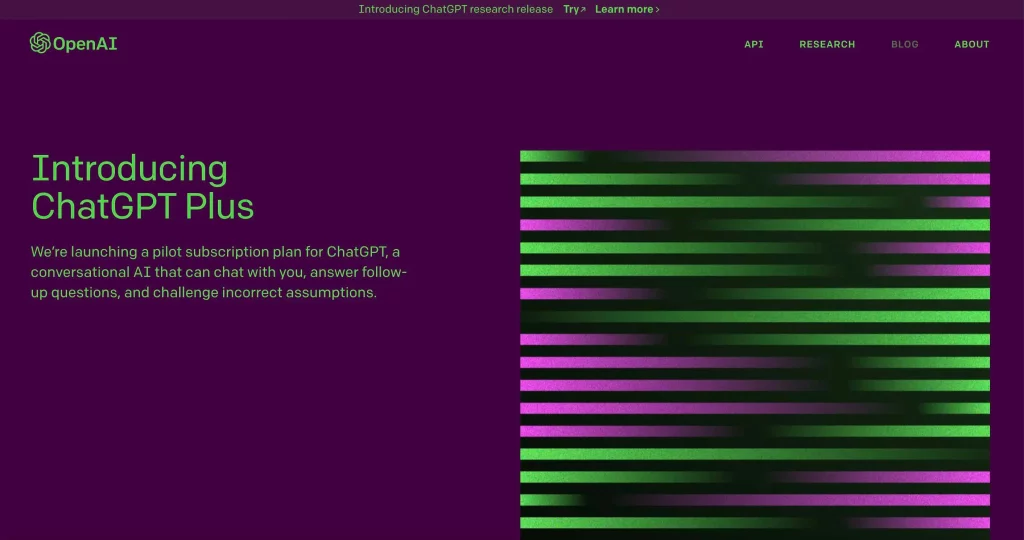
OpenAI, the developer of the AI chatbot ChatGPT, has announced the launch of its paid version, ChatGPT Plus. The new subscription plan, which costs $20 per month, offers users several benefits over the free version, including general access to ChatGPT during peak times, faster response times, and priority access to new features and improvements [2].
According to OpenAI, the new subscription plan will be made available first in the United States and other countries will follow soon after [4]. The company will begin inviting people from its waitlist in the coming weeks [4].
The Benefits of ChatGPT Plus
ChatGPT Plus offers users several benefits over the free version of the AI chatbot. The main benefits of the paid subscription plan include general access to ChatGPT even during peak times, faster response times, and priority access to new features and improvements [3]. One of the best features is the priority access, those already using ChatGPT regularly will likely have run into the server overloaded message at least once!
How Much Does ChatGPT Plus Cost?
Currently, OpenAI has stated that ChatGPT Plus will cost $20 a month as a subscription-based payment model.
The Impact of ChatGPT Plus on the AI Industry
The launch of ChatGPT Plus has forced big tech firms to take notice of advancements in the AI space [1]. Google, the world’s largest search engine, has announced that it will be launching its own artificial intelligence-based large language models, such as LaMDA, in the coming weeks and months [1].
OpenAI’s launch of ChatGPT Plus marks a significant moment in the development of AI chatbots. With its paid subscription plan, OpenAI is offering users several benefits over the free version of the chatbot. The launch of ChatGPT Plus has forced other tech firms to take notice of advancements in the AI space and has led to the announcement of similar products from other companies. Overall, the launch of ChatGPT Plus is a positive development for the AI industry and will likely lead to further advancements in the future, we’re excited to see what’s next!


